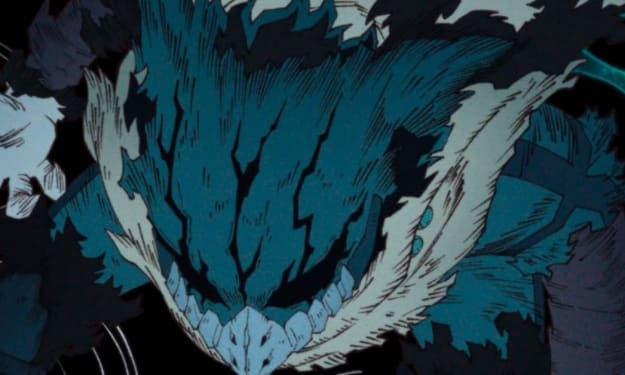Hulu’s “Happiest Season”, The Christmas Rom-Com That’s Coming For Your Heart Strings
A review and discussion article on one of the latest Christmas releases of 2020.

Sometimes, the most meaningful aspects of life are the hardest to have to endure. Their pain is impactful, and it is so often that during those moments we find ourselves forced to ask the question all too many find comfort in ignoring: what was my role in this and do I need to be better?
On November, 25, the romance, comedy, Christmas, drama film that was directed and co-written by Clea DuVall aired on Hulu for all of us to stream at our leisure. The plot follows Abby (Kristen Stewart) and her girlfriend Harper (Mackenzie Davis) as they commute home to Harper’s family for the holidays. The issue is that, on the way, Abby learns that Harper has yet to come out to her parents, so the two hatch a plan that snowballs while triggering intense levels of cringe, anger, and laughter in its viewers as the plot unfolds. The bright, upbeat, comedic tones of “Happiest Season” offer a smooth deliverance of the real-world problems DuVall spotlights. With a wide array of messages, the film is not just a watch recommendation for anyone and those who identify with LGBTQ+, but for those who may behave, well, archaic.
Going into this, I wasn’t aware that it was a rom-com, which is a genre I typically avoid. Not having seen the trailer, I knew this was the latest major Christmas movie to be released and most of the cast I recognized other than Mary Holland, who co-wrote the screenplay with DuVall and starred as Harper’s unproblematic and powerhouse of a sister, Jane. Running 1 hour and 44 minutes, “Happiest Season” tells a tale of perspective through its second-hand embarrassment style of humor and honest representation of life with conservative parents, an earth-shattering reality for many. The movie itself has been referenced by its adoring audience and it’s own creators as being an excellent conduit for bigger discussions, especially with those who identify as straight and reject the idea of any other orientation.
It’s beautifully crafted, and despite the claims from the film’s opposing critics, it’s not 100% perfection. Additionally, the sets are gorgeous and warm; the attention to detail is very present in the screenplay as, during the sequences that speak more directly to the plot, not one beat is wasted. Sound design was interesting to me, because the vibe felt very holiday, while having minimal interference from orchestrated instrumentals during key points, yet still utilizing music’s power to help your heart get up and run with the character as you anticipate their next move. Starring Alison Brie, Aubrey Plaza, Mary Steenburgen, Victor Garber, Dan Levy, Burl Moseley, and more stellar talent that will captivate your heart and traumatize your mind in a most beneficial and positive way, I recommend you to stream “Happiest Season” on Hulu now.
•• Spoilers ahead! ••
It is my belief that DuVall was so articulate with the story she wanted to tell with “Happiest Season” and overall the best part about it was the script. Despite the film falling victim to being just plain unoriginal and mainstream-ified at times, there are many impactful takeaways from it and a lot to unpack. We see names like Sony, TriStar Pictures and Hulu behind a movie featuring a leading lesbian couple. While there’s a few handfuls of LGBTQ+ representation in cinema today, none have taken off or have had the scale of impact like “Happiest Season” has. At the time of this publication, the 2020 rom-com sits as the most popular title on IMDb.
Needless to say, that’s the problem; it’s 2020, and I don’t want to be celebrating that we finally saw something like this, though, I am still excited. Generations now and tomorrow have something we all didn’t. So many different perspectives come into play in “Happiest Season” and each are so well thought out. While the film is great representation, this isn’t a “gay” movie only for gays; Seeing a lesbian couple should be completely normalized by now, but in this world, we still have many upset that, somehow, homosexuality has ruined their wholesome, family holiday. What will the children think when they find out there’s a rom-com that isn’t similar to the literal thousands that feature heterosexual relationships?

I’m a lot less worried about who Abby picked to spend her life with and more concerned with the underlying tones that DuVall brings to light in the characters who believe that being gay equals bad, we should hide it and that this isn’t something you want others to know about. Regrettably, how long we’ve had to live in a world with those exact societal pressures is absurd, and those pressures often do come from our guardians, employers, co-workers, community members, friends, other family, and even strangers.
It sucks, and as Harper did, many of us have to or have had to hide who we are inside too. I despise how she treated Abby and it was all hard to watch, but as DuVall has echoed in interviews before, we’re only seeing Harper during one of the worst and biggest times in her life. Never would I condone her lying, deceit, and mistreatment of her relationship, but at the same time, if hiding who she is the only normal she’s ever known and has the anxious weight of having to routinely uphold the family image, it’s no wonder she’s behaving like this as an adult. Consequently, audiences were quick to judge her for her actions throughout the course of the film, but Harper represents a very unheard, misunderstood story in the demographic.
And listen, we’ve all been a real jerk in some way at one point in our lives. Hasn’t it made us the better version of ourselves that we are today, though? She’s also an adult who has been apart from her parents long enough by now to have been able to realize she has a mind and life of her own, therefore doesn’t need to follow their orders, but you know.
Abby is one of my favorite charterers, and I am also a biased KStew fan, but Abby never treated others poorly during the film. She was pretending to be straight for the girl she loves because she knew Harper wasn’t ready to be out, and it’s no one’s place to out anyone; this alone feels so selfless. Might I add, this is a situation she unknowingly walked into also, and had to withstand so much “casual” discrimination while having to be treated as the “orphan” basket case. She was not treated as a member of the family, something I got the impression from her that she believed she would be given she was with and planned on marrying Harper.
Her style was impeccable, and I know everyone wants to imagine her with Riley’s (Plaza’s) character, but I never believed Abby would do such a thing. She had Riley as a newly found friend she had met through Harper that just so happened to be there during a troublesome time in her relationship, and nothing more. DuVall was certain to show that Abby always had Harper in her thoughts: stopping in the middle of the sidewalk to message her, too distracted by Harper to hear Riley’s story at the white elephant party. I know Abby wanted someone who was ready to be open about themselves to the world, and that fits Riley’s character, but I do believe she was speaking from a place that was set moments after having been deeply hurt by the woman she loves. From no where did I get the impression she was speaking of Riley during that line. I would never say who a person should or shouldn’t be with, but I do find that “Happiest Season” debuts a love story with a heavy presence of forgiveness, not just with its leading couple, but all around.
I am disappointed in Sloane (Brie) for having outed her younger sister, something you can see her character instantly regrets and has an “oh shit” moment with, and she is so fortunate Harper forgave her and the sibling trio united in the end. Sloane’s character was in an unhappy marriage, going through the process of divorce, but couldn’t bear to tell her parents because without her family, they’ve made it nonchalantly clear they’re disappointed in her. Not only is this creating a strain on Sloan, but her ex-husband and children as well. Noticably, she is also extremely jealous of Harper, and this ultimately seemed like the most likely motive behind her outing her sister. “All this because you’re scared to not be the favorite,” she shrilled upon their entrance to the living room.
Jane was another one of my favorite characters, for reasons I feel I need not mention be so bold as her presence in “Happiest Season” was. There wasn’t a single issue with her, yet still, the family placed this unhopeful, never-expect-much hailstorm over her head when the only thing she was doing was being herself. The addition of this role accentuates how judgmental people can be, but how freeing it still is to be unapologetic about the person you are regardless of what others may think. Though, there are many that take a relatable liking to Jane as they too have been treated as an underdog who needs their hand held, or not included because they’re “weird”, and that exact treatment of others needs to fade into extinction.
With Harper’s parents, Tipper and Ted (Steenburgen and Garber), we see the mindset that being gay is a negative thing reflected in their actions, the way they treat others and the comments they make regarding “that lifestyle”. While Tipper is a fashion icon in the film, her idea of eloquent demeanor is clouded by her concern over the family’s image and belief system that she feels puts her above other people, her own kids even, because she has met some criteria that she considers as the golden ultimatums when relating to perfection. Considering yourself to be better than others, comparing to others and navigating your decision making to impress others is no life to live due to how much you will miss out on. With “Happiest Season”, we see this represented in Tipper’s character; she has been so absorbed with these stressors that she’s given up on one daughter, is passive aggressively disappointed in the other for having a family and not a full-time career, and hasn’t the slightest clue that her youngest is a lesbian.
The film has a happy ending, as they all do, and Tipper comes to this realization herself. “That is... very far from perfect, if you ask me,” she says to her husband following the confrontation scene from their children. I was even more elated to see Ted’s character, a conservative politician, change his mind about his actions and even turn down continuing to seek a position of power. Is this realistic? So many of us want to say no, because it’s not our experience. To many LGBTQ+ individuals, this is all a pipe dream far from reality that has to be reimagined.
Though, my hopeful heart can’t help but beg the question that this may be a self-fulfilling prophecy: if no one believes this is a world we can live in, will it ever be?
To rephrase again: To think that we will never have equality, not just for LGBTQ+ but for all, keeps us frozen in a time where equality stays out of reach.
There will always be people who hate on gay individuals and their allies. They will snicker, snarl, and make us feel like we don’t deserve recognition. It’s disheartening, but I can’t say it isn’t their right to think whatever they want. Regardless, hate-fueled actions are unacceptable, and there are several systemic issues of today, one of which being a perpetuation that people are only straight, or should only be straight, anyways. Conversely, everyone should have equal definitions of “freedom” and access to the same opportunities. If that makes you uncomfortable or angry, it says a lot more about you than anything else.
If a movie were to take the dive and aim for more miserable endings, as humorous as this may sound, I would be ecstatic, but I understand DuVall wanting to take that route. There is discussion that the film is reimagined for many reasons, one as a world where Harper being outed by her sister results in neither of her parents being in support; this would then result in the only people you can say you’ve known your whole life abandoning you because, in a life that you didn’t get to chose to have, they don’t accept you for who you are.
During a time when you’re at the point where you’re about to tell someone a matter this close to your truest self, you’re both the bravest you’ve been and the most vulnerable. That’s why it hurts when you’re invalidated and or treated as if you never existed.
Part of you then, now out, has to lose them also, and having a strong emotional response to that is absolutely appropriate. Perhaps Harper didn’t expect her parents to react the way they did in the final scenes in “Happiest Season”; no one can predict anyone’s actions.
Abby was fortunate to have supportive caregivers. Harper was never given that respect and unwavering love from the start; yet, somehow, both her parents changed their minds and they had a happy Christmas. Therefore, another message here, I believe, is that you are the steerer of your own ship. The only person who can change you is you, making that decision or taking that plunge will be hard, but it’s worth it. Basically, “Happiest Season” cinematically tells that if you have to look inside yourself because you’ve been a monster, it’s okay. Homophobia and transphobia are very much alive in places, but it doesn’t have to be. It’s a great movie for people who believe others should only identify as straight because it shows them that, if they fit the profiles of likeminded people like Ted and Tipper, they really are hurting people. The golden rule isn’t really upheld to its fullest extent then, is it? Furthermore, “Happiest Season” also ends by showing you that being wrong is not negative if you learn from the experience, and being in harmony is possible.
Many scenes successfully sent me back to a memory of a conversation I had with someone that I once considered a friend where she expressed to me that her lesbian mother had exchanged a kiss with her partner while the two were chatting on FaceTime. This minor display of affection made her uncomfortable. Her comments and concerns were the baseless cries I’ve been hearing the entirety of my life:
“I support it if that’s what she wants to do, but I don’t want my daughter seeing that. If she is that way, I want her to come to it on her own.”
A parent is to moderate what their child is exposed to, but if one truly supported LGBTQ+, you would do just that: support. It was clear to me that this wasn’t a matter of avoiding a young child seeing two people kiss; the problem was that she could have seen two women kiss. If we can’t model for our children that being gay is just as common and accepted as being straight, they’re going to grow up in the same homophobic world that Harper and so many of us have grown familiar with and tired of.
Like, really damn tired of.
The youth of today will be more fortunate if equality wasn’t something anyone has to ask for and that acceptance wasn’t treated as a means that is to be earned. Children that identify as LGBTQ+ can benefit from films like “Happiest Season” because who you are inside may not be represented or supported by those around you- even family. An environment which does not allow for one to be their authentic selves in is not only horrifying, but can create problems later down the road for the victims. As a society, even in the most progressive areas, we still see this hateful judgement passed and silence pushed to gays, lesbians, bisexuals, asexuals, pansexuals, transsexuals, and so many others. Truthfully, it is no one’s business a person’s orientation.
Together, we can build a stronger, safer, and more inclusive world that allows us to focus our energy and efforts towards movements that aren’t screaming for something human beings should have had all along. To DuVall and everyone else who was a part of “Happiest Season”: thank you, and let’s all keep making more stuff like this, please.
••
Enjoyed this article? Hear more of my thoughts about “Happiest Season” on this week’s episode of the podcast For Chris’ Sake, with host Chris Anthony Lopez!
Listen on Spotify:
Or on Apple Podcasts!
Follow Chris on Twitter @CAnthonyLopez.






Comments
There are no comments for this story
Be the first to respond and start the conversation.